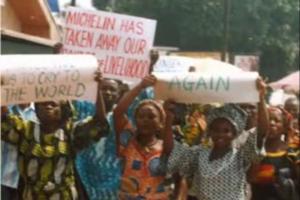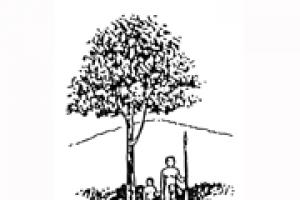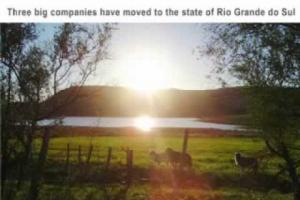“I don’t want money. I want my land back…if they give me one million Naira [the local currency] today, I will still go broke, but if I have my land I can always farm to take care of my family and possibly pass the land on to my children.”(Woman from Iguoriakhi)
Large-Scale Tree Plantations
Industrial tree plantations are large-scale, intensively managed, even-aged monocultures, involving vast areas of fertile land under the control of plantation companies. Management of plantations involves the use of huge amounts of water as well as agrochemicals—which harm humans, and plants and animals in the plantations and surrounding areas.
Bulletin articles
30 March 2009
Bulletin articles
30 March 2009
World consumption of paper has exploded over the past 50 years. Only about 1/3 of paper production is used for writing and printing paper, most of it is used for advertising. And almost half of all paper produced is used for packaging.
Other information
30 March 2009
If after reading the above articles you (as a woman within an organization, as a member of a women’s movement, as an activist on human rights issues, as an environmentalist, as a journalist, as a member of a consumer’s association, as a campaigner on climate issues, trade issues, health issues, etc) are wondering what you can do to start making changes to the current situation, we have some ideas that we hope may be of use.
Declarations
28 March 2009
Heredia, 28 March 2009
We, organisations of civil society from every continent, have met in Costa Rica between 24 and 28 March to share experiences, visit peasant communities, think and present proposals on the question of climate, forests, and plantations.
Multimedia
11 March 2009
By the World Rainforest Movement and Forest and Biodiversity Program of Friends of the Earth International
Other information
27 February 2009
In 1991, the Veracel Celulose company, then known as Verazcruz Florestal, first arrived in the extreme south region of the state of Bahia.
Originally, this hot, humid region was covered with various types of Atlantic Forest, which has since been destroyed and replaced with crops, pastureland and monoculture eucalyptus tree plantations.
Other information
27 February 2009
As exposed in previous WRM Bulletin issues, criminalization is part of a strategy aimed at silencing any protest generally against the extractive activities of transnational corporations (see WRM Bulletin Nº 125). It is happening all over Southern countries. And it is happening right now in Indonesia, where it has victimized another fighter of social resistance to land-grabbing by palm oil-companies in the country.
Other information
27 February 2009
In Uruguay at the end of the forties, the State promoted an exemplary initiative, the creation of the National Settlement Institute (Instituto Nacional de Colonización - INC), that arose from the need for a “suitable instrument to promote a rational subdivision of land and its appropriate exploitation in order to achieve the settlement and welfare of rural workers, thus promoting an increase and improvement in farm production.”
Bulletin articles
27 February 2009
In 2008, the value of the carbon market increased by 84 per cent, with total transactions increasing from US$64 billion in 2007 to US$118 billion in 2008. Surely, with all that money changing hands, there must be some good news to report about the amount of carbon dioxide in the atmosphere?
Other information
30 January 2009
Did you ever imagine that the tyres of your car may have been produced at the expense of a local community’s livelihood in Nigeria?
Most of the world natural rubber production goes for the manufacturing of tyres for different types of vehicles, ranging from cars, to trucks, airplanes and so on. To have an idea of the huge amount of tyres consumed, let’s take a look at the statistics in 2007 where 1.3 billion tires were produced.
Other information
30 January 2009
The “Small Holder Agriculture Development Project” (SADP) is a World Bank loan recently granted to the PNG Government. The SADP project, a U$S 27.5 million credit “aims to enhance agricultural incomes in a number of communities in West New Britain and Oro provinces.” According to World Bank’s Country Manager for PNG Benson Ateng this project is “a core element of the new Country Strategy, through its support for poverty alleviation in two oil palm growing provinces.
Other information
30 January 2009
Before the current global economic meltdown, the pulp industry had ambitious expansion plans. Although the industry was closing mills in the North, it was expanding dramatically in the South where about five million tons of new capacity was due to start up each year for the next five years. Vast areas of monoculture tree plantations have been established to feed raw material to huge new megamills, particularly in Latin America, southeast Asia and South Africa.



